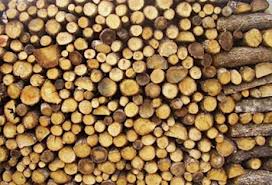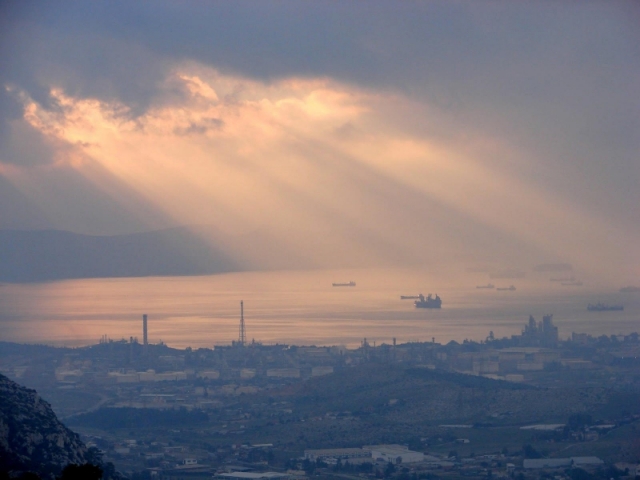The increase in the excise duty on heating fuel has forced a large number of Greek households to find alternative solutions, the most popular among them being the fireplace. According to studies, however, the burning of wood greatly increases air pollution. Scientists recommend taking measures, indicating that a colder winter will further worsen the problem.
The particles that are emitted from the burning of wood are just as dangerous to human health as the ones emitted from car exhausts and other sources of burning. Although there have been no epidemiological studies so far, scientists believe that the moment they enter the lungs, they cause serious damage especially to the heart.
Measurement data show that the danger increases if air pollution in Athens and other cities is combined with burning wood when temperatures are low and there is no wind. Experts say that this year's relatively "warm" winter has prevented the inhabitants of large cities from the dangerous "cocktail" previously described.
 The study of the level of air pollution in the five largest cities in Greece and the contribution of each pollutant to it was held from 10 January to 10 February 2013. The scientists measured the airborne particles using specialized chemical analyses.
The study of the level of air pollution in the five largest cities in Greece and the contribution of each pollutant to it was held from 10 January to 10 February 2013. The scientists measured the airborne particles using specialized chemical analyses.
According to their report, "the concentration of airborne particles on cold nights without wind reached very high levels". The highest among them were in the Thiseio region in the centre of Athens, where they reached 100 micrograms per cubic metre and in the centre of Patras with more than 200 micrograms per cubic metre. The experts make a comparison with the annual average concentrations of PM2.5 in the European Union, which is 20 micrograms per cubic metre.
Indicative emission of particles:
- Fireplace and wood stove (per 4 hours of burning): 150 g
- Car, model 1992 (per 30 km): 0.5 g
- Car, model 2009 (per 30 km): 0.15 g
- Pellet boiler (per 4 hours of burning): 5 to 20 g
- Heating fuel boiler (per 4 hours burning): 2 g
- Natural gas boiler (per 4 hours burning): 0.2 g
In Patras, the concentration of PM2.5 was above 50 micrograms per cubic metre during 12 evenings and nights of the studied period. During five of those, the concentration reached 100 micrograms per cubic metre. Such was the situation in Ioannina - 19 evenings and nights with a concentration of 50 micrograms, including five with 100 micrograms per cubic metre. The lowest was the pollution in the city of Heraklion on the Island of Crete, where temperatures were higher. During the nights with high air pollution, over 90% of the concentration was due to very small particles - with a diameter of less than 2.5 micrometres. They penetrate more easily than larger-sized particles and are thus able to reach the bronchi of the lungs, where they cause serious damage. High concentrations of airborne particles were reported between 7 pm and 3:00 am, the peak being at midnight.
The main reason for the increased concentration was the wood burning during the night hours. According to researchers, 90% of the pollution was due to it.

At the same time, concentrations of aromatic compounds such as toluene and xylene were detected among the agents during the nights with the highest levels of air pollution. Their presence indicated that some households used treated wood and other materials for heating.
The study was conducted within the context of the "Tallis" programme, which involved scientific groups from the Aegean University and the Universities of Patras, Ioannina and Crete and the research centres of "Dimokritos", the National Observatory of Athens and the Georgia Institute of Technology.